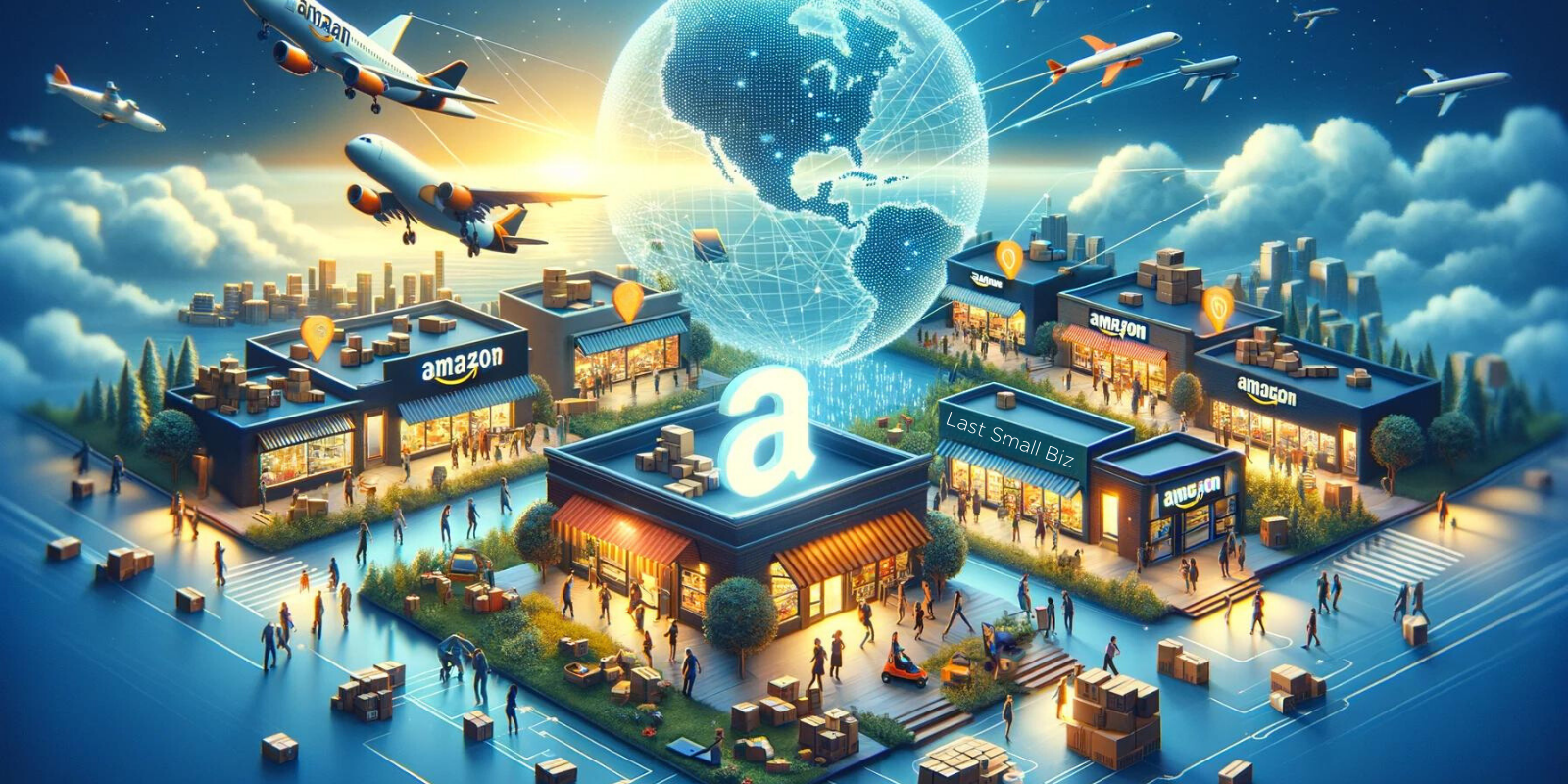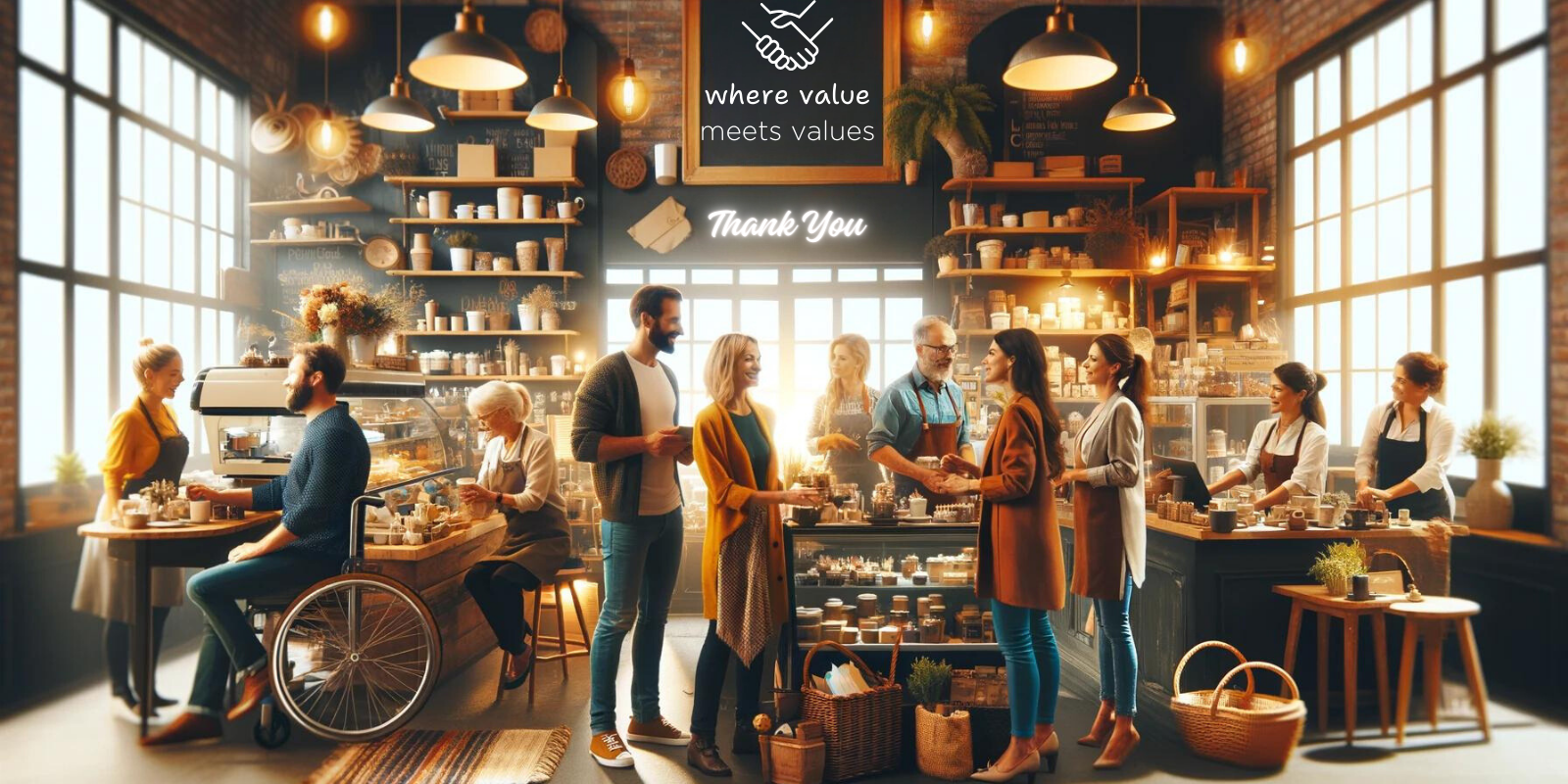
Rethinking Convenience, The Hidden Costs of Shopping on Amazon for Consumers, and the impact on Small Business Sellers.
Convenience is king and Amazon reigns supreme, offering the largest catalog of products where you can select whatever your heart desires, with the click of a button. Beneath the surface of this digital marketplace lies a web of issues affecting consumers, small businesses, and the planet. This blog is written by a business owner who has been selling on Amazon for 10 years with Far North of 10 million dollars in sales. You need to realize that everything you are going to read is being written by someone who makes money on Amazon and has built a successful brand on Amazon.

I aim to peel back the layers of Amazon's impact, urging a reconsideration of where we choose to spend our money.
Writing this blog is not easy… My company relies on Amazon sales, and I am scared that Amazon will flip a switch, blackballing my listings the second their ai robots scroll this page, but I will continue writing.
Amazon has over 2.5 million active small business sellers on its platform. This number fluctuates due to thousands of new sellers joining each month, existing sellers becoming inactive, or accounts being closed.

The advantage of Small Businesses selling on Amazon’s platform is that it provides visibility to a national customer base who love the convivence of shopping digital storefronts. Amazon is the biggest and easiest storefront selling every product from those 2.5 million businesses, sharing entire product catalogs online and Amazon takes one hefty fee for providing the opportunity to sell to Amazon customers. Amazon is very clear that if you buy a product on Amazon, then you are NOT a customer of the small business who helped you… You are Amazon’s customer.
The fees are a much higher percentage than expected, I wish it was only 15 percent. This fee destroys thin margins, it doesn’t matter the product. Most products and brands have competition, keeping price in check. The Amazon fee structure is extremely complicated and millions of small business owners have lost money, are losing money, and have gone out of business trying to sell products on Amazon. Bezos is worth 200 billion dollars because he is gouging small business owners with a pay to play marketplace that is designed around deception.
A small business survives the early years of Amazon sales once they realize their products need to be more expensive on Amazon than if they purchased direct from the small business. When a small business begins to grow and expand their Amazon marketplace, growing dependent on the sales channel... Another wave of problems will begin to emerge.

The China Problem:
What many shoppers don't realize is that an extremely high percentage of the business sellers on Amazon are Chinese companies. Amazon warehouses have become floodgates for containers filled with cheap, low-quality products traveling from the ports of China, across oceans, to an Amazon warehouse, and then direct to your door. A flow of goods lacking any form of quality control. The only companies making money in this transaction are Chinese corporations, Amazon, and shipping companies. Cheaper products, means lower prices. The amazon algorithm favors lower prices when it determines what products are displayed in a customer’s search. This forces American small businesses to reduce margins, to lose money, if they want to sell their products on Amazon. This is an awful cycle for the consumer and our environment will pay the consequences. Quality will be sacrificed, and it will cost everyone more money and more problems in the future.
Like my grandpa once said…Never save a $1 if it will cost you $5 dollars.

Products designed to fail soon after purchase contribute to the growing problem of waste and undermine efforts to promote sustainable consumption and production patterns. The ease with which these products enter and dominate the marketplace on Amazon displaces locally sourced, quality-controlled products, and misleads consumers into a cycle of purchase and disposal that is detrimental to environmental sustainability and economic resilience.
It’s extremely difficult to show value in an Amazon listing. I’ve been trying to solve this problem for many years, and we do a decent job. A key obstacle is the perception among many Amazon shoppers that they're purchasing directly from Amazon, regardless of the actual source—be it Amazon itself, a Chinese manufacturer, or a local American business. This misconception underscores the importance of developing a listing that not stands out and educates consumers about the unique benefits and origin of the product.
The next challenge for small business selling on Amazon is that if they hit the jackpot, creating a million-dollar listing, Amazon will pay out and then take it away. When a product crosses a success threshold it is flagged by Amazon as a payday for Amazon to duplicate on Amazon, Amazon will contract with Chinese factories to have the product sold under its own label, making the original small business listing impossible to find. This is one of the main topics in the congressional investigation. Amazon is taking away money that supported American workers and their families. Remember that Amazon wants excessive repeat business so they will manufacture these products to fail.

Amazon's automated customer service and liberal return policy might seem like benefits, but they mask a deeper issue. Unlike a small business that values each customer and offers personalized service, Amazon's approach is impersonal and cold, enforcing a throwaway society. The ease of returns contributes to an unsustainable cycle of waste and shipping that is hurting our environment and the small businesses is forced to absorb these costs, Amazon pays nothing for this return policy. My small company has an Amazon division and an Inside Sales team that helps businesses and homeowners all over the country. My Amazon team handles $4000 in returns every single week. It’s an unusual day when my inside sales team has a return. The difference is customer service and the fact that when you buy direct from a small business, they care about your business.
Anyone who has shopped on Amazon is familiar with that sinking feeling of realizing you're about to devote the next 20 to 60 minutes wrestling with customer service. This scenario plays out too often, leaving customers feeling frustrated and helpless. Whether it's a misplaced order, a defective product, or a delivery gone awry, the process of reaching out for help can feel like entering a maze with no clear exit. The anticipation of trying to solve your problem, only to be met with scripted responses that never addresses the core issue.
The Environmental Toll of Convenience in Amazon's business model, centered on speed and an illusion of lower prices, exacts a heavy environmental toll. The carbon footprint of expedited shipping, coupled with the waste generated by excessive packaging and the returns process presents a significant sustainability challenge. This model encourages a culture of consumption that is at odds with the pressing need for environmental stewardship.

As consumers, it's crucial to recognize the power of our choices. By opting to support small business directly, we can foster a more sustainable, equitable, and vibrant future. Consider buying directly from business websites, exploring local markets, or using platforms that prioritize fair practices for American enterprises. Together, we can create a demand for a more responsible and thoughtful approach to consumption. Not every search, for every product, should begin on Amazon.

In closing, while Amazon offers undeniable convenience, the true cost of this convenience is too high for American Small Business, consumers, and the planet. It's time to reconsider our shopping habits, championing a future where the market serves the community, not just Bezos and China. I see correlations between shopping on Amazon, cell phone addiction, the overuse of social media in society as a form of addiction. It’s truly remarkable how one company has influenced and changed the way American’s live, and the way Americans spend their money. Most American’s work hard for their money which in the past would cycle and flow through a community. Today a local business pays workers who spend that money in a digital world, with a very high percentage going direct to China rather than the businesses who are supporting your family, friends, neighbors, and American Small Business. China and Amazon are taking over the world.

It's never too late to make a change, for small changes over time, will make a difference. Amazon has a purpose in today’s economy, so do our cell phones and social media. I believe all three are being overused and it has become a major problem for society because they have shifted from being used in moderation to excessive. They will continue to wreak havoc on the future of America, for in excess, they are not making America a better place.
This is why we are doing everything possible to begin manufacturing light bulbs in Fargo, North Dakota. Engineering and manufacturing LED light bulbs in America will be our way to disrupt the cycle of reliance on overseas production, reduce our carbon footprint, and ensure the highest quality and sustainability standards for our customers. By bringing production closer to home, we aim to foster local innovation, create jobs, and offer a more transparent supply chain. This initiative signifies our commitment to environmental stewardship and economic growth but also positions us to lead the way in ethical manufacturing practices within the lighting industry.



2 comments
Hi there. I found your article very informative and read it with great interest. I have only recently discovered this blog and I am glad I did. I like your approach and your writing style. I will definitely be reading more articles. Congratulations on the blog and I wish you all the best! https://spiritualseek.online/
What a brave and thoughtful post. I am researching the areas in which Amazon’s Climate Pledge falls short and found your post heartfelt and insightful so just wanted to say thank you for sharing. I hope your business is booming!